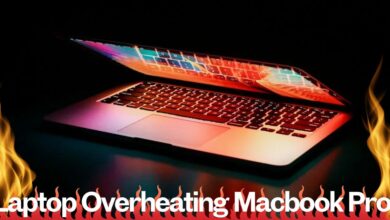USB-C Hubs for Connecting Multiple Gaming Peripherals to Laptops

Gaming on a laptop has become increasingly popular due to advancements in hardware and portability. However, many gaming laptops come with limited ports, making it challenging to connect multiple peripherals like gaming keyboards, mice, controllers, external storage, and monitors. USB-C hubs for connecting multiple gaming peripherals to laptops offer a versatile and efficient solution to this problem. In this guide, we’ll explore the benefits, features, and top choices for USB-C hubs that enhance your gaming experience.
Why Use USB-C Hubs for Gaming?
Modern gaming laptops are designed for power and efficiency, often prioritizing sleek designs over extensive connectivity options. A USB-C hub for connecting multiple gaming peripherals to laptops can address these issues by:
- Expanding Connectivity: Adding multiple USB-A, USB-C, HDMI, Ethernet, and SD card slots.
- Reducing Cable Clutter: Consolidating all peripherals into a single connection.
- Enhancing Performance: Supporting high-speed data transfer and stable connections.
- Providing Power Delivery: Allowing laptops to charge while using multiple peripherals.
- Supporting Multiple Displays: Enabling dual or triple monitor setups for an immersive experience.
Key Features to Look for in a USB-C Hub for Gaming
When choosing a USB-C hub for connecting multiple gaming peripherals to laptops, consider the following features:
Port Selection and Expansion
A good gaming hub should include:
- USB-A ports: For connecting gaming keyboards, mice, controllers, and external storage.
- USB-C ports: For power delivery and high-speed data transfer.
- HDMI/DisplayPort: For connecting external monitors with high refresh rates.
- Ethernet port: For a stable wired internet connection.
- SD/microSD card slots: For additional storage and easy data transfer.
Power Delivery (PD) Support
Look for a USB-C hub with Power Delivery (PD) support, ensuring your laptop receives sufficient power while gaming. Some hubs support up to 100W PD, which is ideal for high-performance gaming laptops.
High-Speed Data Transfer
Gaming requires fast response times, so ensure the hub supports USB 3.2 or higher for speeds up to 10Gbps. This is particularly useful for:
- Transferring large game files quickly.
- Connecting external SSDs for fast game loading.
- Reducing input lag for gaming peripherals.
4K and High-Refresh-Rate Display Support
For an immersive gaming experience, a hub should support at least 4K at 60Hz or 144Hz refresh rates for smooth gameplay on external monitors.
Reliable Build and Heat Management
A premium USB-C hub should have:
- Aluminum casing for heat dissipation.
- Overcurrent and short-circuit protection.
- A lightweight yet durable design.
Best USB-C Hubs for Connecting Multiple Gaming Peripherals to Laptops
Anker PowerExpand 8-in-1 USB-C Hub
Why Choose It?
- 100W power delivery for uninterrupted gaming.
- 4K HDMI output at 60Hz.
- Ethernet port for stable internet connections.
- Multiple USB 3.0 ports for gaming accessories.
Razer Thunderbolt 4 Dock Chroma
Why Choose It?
- Designed specifically for gaming setups.
- Supports dual 4K monitors at 60Hz or a single 8K display.
- 40Gbps data transfer speeds with Thunderbolt 4.
- RGB Chroma lighting for an aesthetic gaming experience.
CalDigit TS4 Thunderbolt 4 Dock
Why Choose It?
- 18 ports, including multiple USB-A and USB-C connections.
- High-speed 2.5Gb Ethernet for low-latency gaming.
- 98W power delivery for high-performance laptops.
- Supports dual 4K 60Hz monitors.
UGREEN 9-in-1 USB-C Hub
Why Choose It?
- Budget-friendly yet powerful.
- 100W PD charging support.
- 5Gbps USB-A ports for fast gaming peripherals.
- HDMI 4K output at 60Hz.
Satechi Multi-Port Adapter 4K with Ethernet V2
Why Choose It?
- Stylish and compact design.
- Supports 60Hz refresh rates for smooth visuals.
- Gigabit Ethernet for reliable gaming connectivity.
- SD and microSD card slots for easy data transfers.
How to Optimize Your USB-C Hub for Gaming Performance
Once you’ve chosen a USB-C hub for connecting multiple gaming peripherals to laptops, follow these tips for optimal performance:
Prioritize Power and Bandwidth Allocation
- Plug power-intensive devices (external hard drives, gaming controllers) into high-speed ports.
- Use USB 3.2 or Thunderbolt ports for high-bandwidth devices.
Optimize Display Setup
- If using multiple monitors, adjust your laptop’s display settings for extended mode.
- Ensure your hub supports the refresh rate of your monitor (e.g., 144Hz for smooth gaming).
Ensure Stable Internet Connection
- Use the Ethernet port on your hub instead of Wi-Fi for reduced latency.
- Enable QoS (Quality of Service) settings on your router for gaming traffic prioritization.
Manage Overheating and Cooling
- Place your hub in a well-ventilated area to avoid overheating.
- Avoid overloading the hub with excessive peripherals beyond its recommended power limits.
Keep Drivers and Firmware Updated
- Regularly check for firmware updates from the hub manufacturer.
- Ensure your laptop’s USB-C and Thunderbolt drivers are up to date.
Common Issues and Troubleshooting Tips
USB-C Hub Not Recognizing Peripherals
Solution: Ensure all drivers are installed, restart your laptop, and try different ports on the hub.
External Monitor Not Displaying Properly
Solution: Check display settings, ensure the hub supports the required refresh rate, and use certified HDMI or DisplayPort cables.
Slow Data Transfer Speeds
Solution: Use USB 3.2 or Thunderbolt ports, avoid connecting too many devices at once, and check for background applications consuming bandwidth.
Overheating Issues
Solution: Use an aluminum hub with proper heat dissipation, avoid stacking multiple hubs, and allow airflow around the device.
Conclusion
A USB-C hub for connecting multiple gaming peripherals to laptops is a game-changer for laptop gamers who need expanded connectivity. Whether you’re using a gaming keyboard, mouse, controller, external SSD, or multiple monitors, the right USB-C hub enhances your setup with seamless performance and convenience.
When selecting a USB-C hub, consider factors like power delivery, data transfer speeds, display support, and port variety to ensure an optimized gaming experience. By choosing a reliable hub and configuring it correctly, you can unlock the full potential of your gaming laptop and enjoy a hassle-free setup for years to come.
Also read: Ergonomic gaming chairs suitable for laptop users



